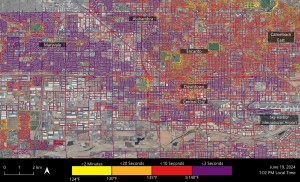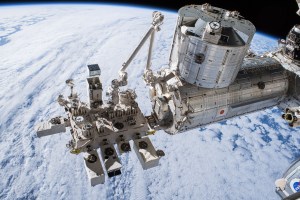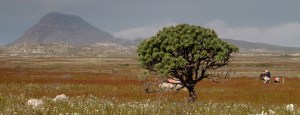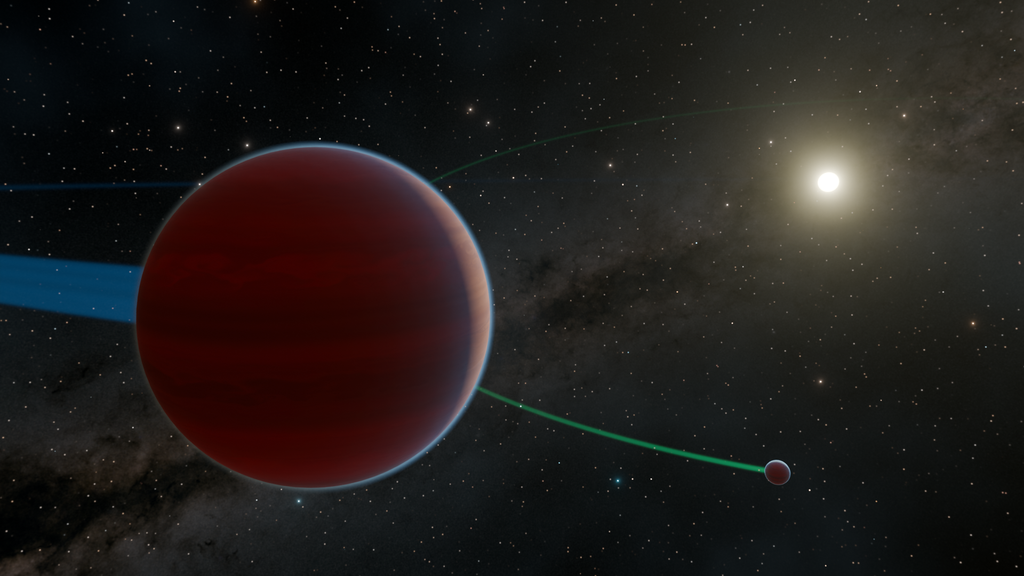ECOSTRESS Stories

Roads and sidewalks in some areas get so hot that skin contact could result in second-degree burns. Researchers at NASA’s Jet Propulsion Laboratory in Southern California have mapped scorching pavement in Phoenix where contact with skin — from a fall,…

Science in Space: April 2024 Everyone on Earth is touched by the effects of climate change, such as hotter temperatures, shifts in rain patterns, and sea level rise. Collecting climate data helps communities better plan for these changes and build…

NASA satellite and airborne tools aid an international team studying biodiversity on land and in the water around South Africa. An international team of researchers spent October and November 2023 in the field studying one of the world’s most biologically…























